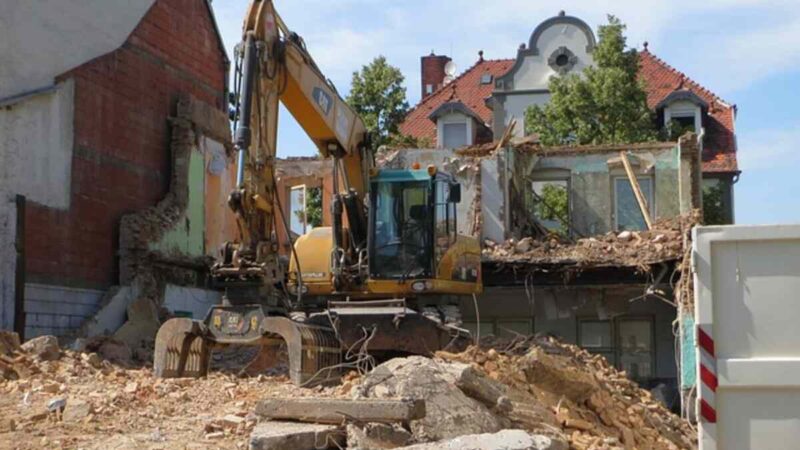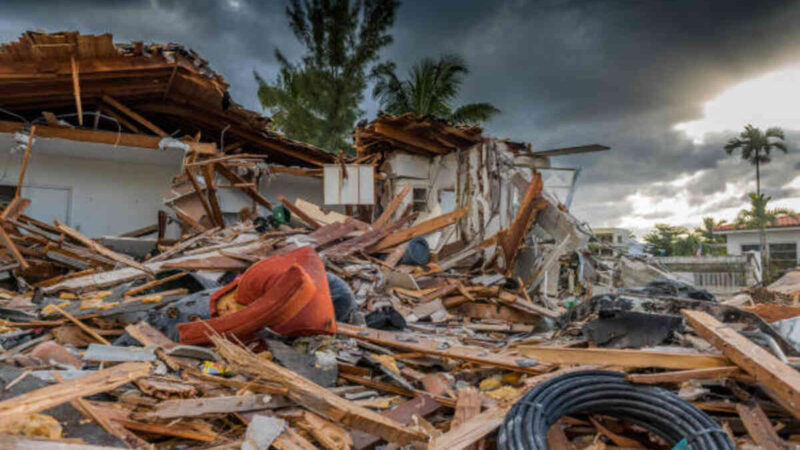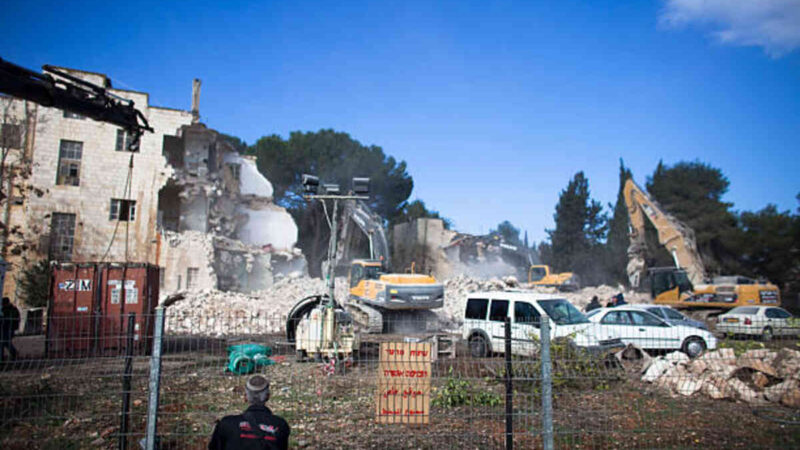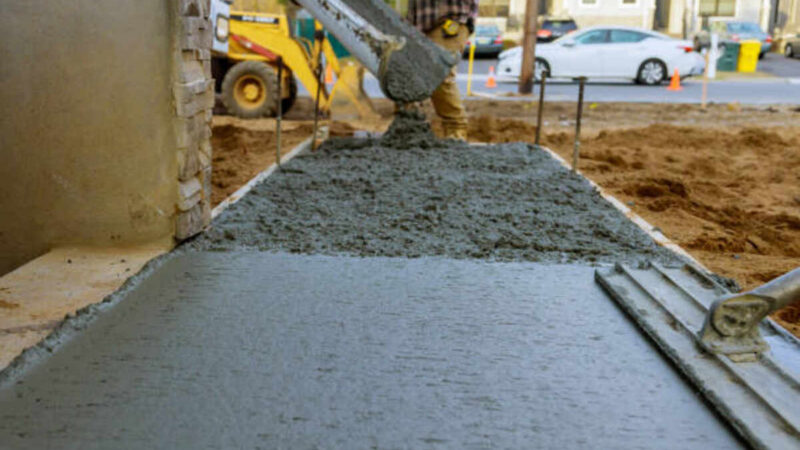Safety Tips for Demolition Projects Round Rock
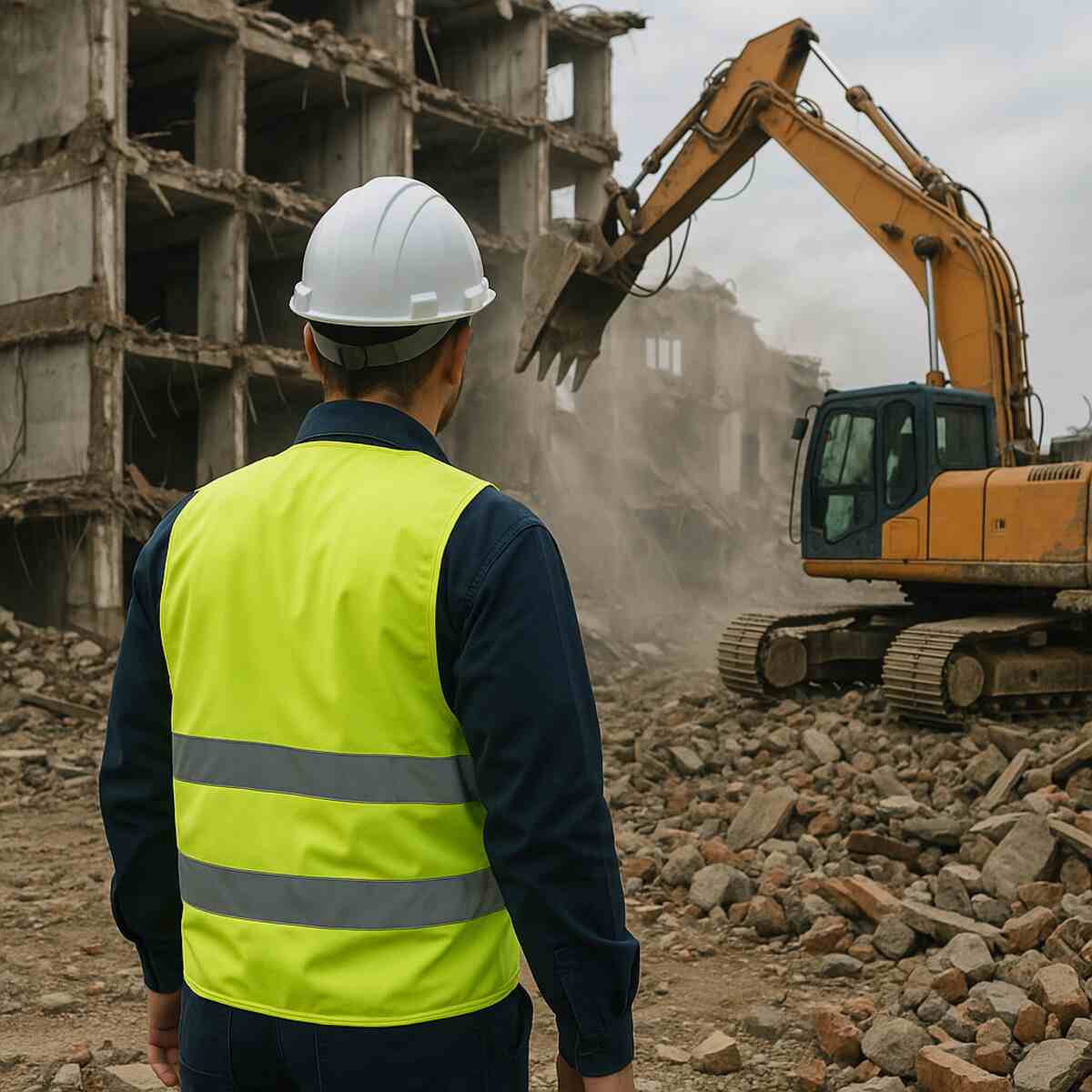
Before you dive into the world of demolition, it’s crucial to grasp what residential demolition entails. In Round Rock, this can mean anything from tearing down an old garage to making way for a new home or simply removing an outdated structure. Whatever your project, a solid foundation of knowledge is key to ensuring safety and success. Sort out the residential demolition round rock.
Defining Residential Demolition
Residential demolition involves the systematic dismantling of buildings and structures in a residential setting. This could include houses, garages, sheds, and other structures. Understanding the scope of demolition helps to set clear objectives and expectations for the project. It’s not just about tearing down walls but doing so in a manner that considers the environment and the surrounding community.
Different Types of Demolition
There are various types of demolition, each suited to specific needs and structures. Controlled demolition, for example, is carefully planned to minimize impact on surrounding areas, while selective demolition focuses on removing certain parts of a structure while preserving others. Understanding these distinctions can help tailor the approach to suit the specific requirements of a project, ensuring both efficiency and safety.
The Importance of a Thorough Assessment
Before any demolition project begins, a thorough assessment of the site is essential. This involves evaluating the structural integrity of the building, identifying potential hazards such as asbestos, and determining the best approach for demolition. A detailed assessment helps in crafting a comprehensive plan that addresses all safety concerns and prepares for any unforeseen challenges.
Engaging Local Demolition Experts
One of the first steps is to engage with local demolition experts. These professionals possess the expertise and equipment necessary to safely execute demolition services in Round Rock. Their experience in handling various demolition projects ensures that the job is done effectively, minimizing risks and potential hazards. So, when you’re plotting out your project—be it a novel chapter or a physical teardown—consider the importance of having experts on your side.
Benefits of Hiring Local Experts
Hiring local demolition experts brings numerous benefits, including familiarity with local regulations and conditions. These professionals have a profound understanding of the area’s specific requirements and can navigate any legal or environmental challenges more effectively. Their local presence also means they can respond quickly to any issues that arise, ensuring the project remains on track.
Understanding Local Regulations
Each region has specific regulations governing demolition projects, and Round Rock is no exception. Engaging local experts who understand these regulations ensures compliance and helps avoid legal complications. They can assist in securing necessary permits and navigating any bureaucratic hurdles, making the process smoother and less stressful.
Building a Reliable Team
A successful demolition project requires a reliable team of professionals who can work together efficiently. Local demolition experts often collaborate with other specialists, such as engineers and environmental consultants, to ensure that all aspects of the project are covered. Building a team of trusted professionals is crucial for executing a safe and successful demolition.
Essential Safety Tips for Demolition
Safety should always be a top priority, whether you’re dismantling a plot twist or a physical structure. Here are some essential safety tips to keep in mind:
Comprehensive Planning
Just like outlining your novel or structuring your content, a detailed plan is vital. Before the first sledgehammer swings, make sure there’s a comprehensive demolition plan in place. This includes identifying potential hazards, such as asbestos or lead-based paint, and having a strategy to address them.
Detailed Hazard Identification
Identifying potential hazards is the cornerstone of a safe demolition project. This involves a thorough inspection of the site to uncover any dangerous materials or structural weaknesses. Knowing what you’re dealing with allows for better planning and minimizes the risk of accidents. Creating a detailed list of identified hazards helps in prioritizing safety measures.
Crafting a Step-by-Step Plan
A step-by-step demolition plan provides a clear roadmap for the entire project. Each phase of the demolition should be meticulously planned, with specific tasks assigned to ensure that nothing is overlooked. This structured approach helps in coordinating efforts and maintaining safety standards throughout the process.
Contingency Planning
Unexpected challenges can arise during demolition, just as plot twists can surprise writers. Having a contingency plan in place prepares the team to handle unforeseen issues efficiently. This might include alternative methods for dealing with unexpected hazards or adjusting timelines to accommodate changes in the project scope.
Secure Permits and Legal Approvals
Navigating the bureaucracy of permits and approvals can be as complex as crafting a compelling narrative. In Round Rock, ensure you secure all necessary permits and legal approvals before beginning any demolition project. This step is essential to avoid legal issues and ensure the project complies with local regulations.
Understanding the Permitting Process
The permitting process for demolition involves several steps and can vary depending on the size and type of the project. Understanding this process is crucial for obtaining all necessary approvals in a timely manner. This includes knowing which permits are required and what documentation needs to be submitted.
Working with Local Authorities
Establishing a good working relationship with local authorities can facilitate the permitting process. Local experts often have existing connections with these authorities, which can expedite approvals. Regular communication ensures that all parties are informed and any issues are resolved quickly.
Importance of Legal Compliance
Compliance with local laws and regulations is not just a formality but a crucial aspect of responsible demolition. Legal compliance helps prevent fines and work stoppages, ensuring the project proceeds smoothly. It also demonstrates a commitment to community safety and environmental responsibility.
Use the Right Tools and Equipment
Equipping yourself with the right tools is akin to choosing the perfect words for your story. Ensure that all tools and machinery used are in excellent condition and suitable for the specific demolition task. This reduces the risk of accidents and ensures the efficiency of the project.
Selecting Appropriate Equipment
Choosing the right equipment is essential for the safety and success of a demolition project. Each task requires specific tools, whether it’s heavy machinery for large structures or hand tools for precise work. Selecting the appropriate equipment ensures that the project can be completed efficiently and safely.
Regular Maintenance and Inspection
Regular maintenance and inspection of tools and equipment are critical to preventing accidents. All machinery should be checked for wear and tear, and any faulty equipment should be repaired or replaced immediately. A rigorous inspection routine ensures that all equipment is in optimal working condition.
Training and Safety Protocols
Proper training for operating machinery is essential to prevent accidents. All personnel should be thoroughly trained in the use of equipment and safety protocols. This includes understanding how to respond in case of an emergency, ensuring that everyone on-site can act quickly and effectively if needed.
Personal Protective Equipment (PPE)
Just as you’d guard your writing with a strong editing process, protect yourself physically with the right PPE. This includes hard hats, safety glasses, gloves, and steel-toed boots. Ensuring everyone on-site is wearing appropriate PPE is a non-negotiable aspect of demolition safety.
Importance of Proper PPE
The use of Personal Protective Equipment (PPE) is crucial in safeguarding workers against potential hazards. PPE serves as the last line of defense against injuries, making it an essential component of safety protocols. Ensuring that all workers are equipped with the right PPE is critical to maintaining a safe work environment.
Types of PPE for Demolition
Different types of PPE are required depending on the specific tasks and hazards present in a demolition project. This includes helmets to protect against falling debris, goggles to shield eyes from dust, and gloves to prevent hand injuries. Selecting the appropriate PPE for each task is vital to ensure comprehensive protection.
Ensuring Compliance with PPE Guidelines
Ensuring compliance with PPE guidelines involves regular checks to confirm that all workers are wearing the required protective gear. Supervisors should conduct regular inspections and enforce strict adherence to PPE rules. This not only protects workers but also reinforces a culture of safety within the team.
Demolition Services and Their Role
Engaging professional demolition services in Round Rock goes beyond mere convenience. These services bring a wealth of knowledge and experience, ensuring that your demolition project is handled with precision and care.
Expertise and Efficiency
Professional demolition services provide a level of expertise that is crucial for safe and efficient demolition. They understand the nuances of different structures and can execute the project with minimal disruption to the surrounding area.
Advanced Techniques and Tools
Professional demolition services have access to advanced techniques and tools that can significantly enhance the efficiency of the project. These technologies enable precise execution and can reduce the time required for demolition. Utilizing these resources ensures a high standard of work and minimizes disruptions.
Skilled Workforce
A skilled workforce is integral to the success of any demolition project. Professional services employ experienced workers who are trained to handle various aspects of demolition safely and effectively. Their expertise ensures that all tasks are completed to the highest safety and quality standards.
Streamlined Processes
Streamlined processes are essential for maintaining efficiency and safety in demolition projects. Professional services have established procedures that ensure all tasks are carried out systematically. This structured approach helps to avoid delays and ensures that the project is completed on time.
Waste Management and Cleanup
The aftermath of a demolition project can be as overwhelming as a messy first draft. Professional services manage waste disposal and cleanup, ensuring the site is left in a safe and tidy condition. This aspect is crucial for maintaining safety and environmental responsibility.
Environmentally Responsible Disposal
Proper waste disposal is critical to minimizing the environmental impact of demolition. Professional services ensure that all waste is disposed of responsibly, adhering to local regulations and environmental standards. This includes recycling materials where possible and ensuring hazardous waste is managed safely.
Comprehensive Cleanup Services
A thorough cleanup is essential to leave the site in a safe and presentable condition. Professional services take care of all aspects of cleanup, from removing debris to sweeping and clearing the area. This ensures that the site is ready for the next phase of development or construction.
Minimizing Environmental Impact
Minimizing the environmental impact of demolition involves careful planning and execution. Professional services implement measures to reduce noise, dust, and other environmental disturbances. This not only protects the environment but also minimizes the impact on the surrounding community.
Avoiding Common Demolition Mistakes
Mistakes in demolition can be costly and dangerous, much like a plot hole in your story. Here are some common mistakes to avoid:
Ignoring Safety Protocols
Skipping safety protocols is a surefire way to encounter problems. Always adhere to safety guidelines and ensure that everyone on-site is aware of and follows these protocols.
Importance of Strict Adherence
Strict adherence to safety protocols is critical to preventing accidents and ensuring a safe working environment. This involves regular training and reinforcement of safety rules to ensure all workers understand and comply with the guidelines. Consistent adherence to protocols protects workers and minimizes the risk of accidents.
Regular Safety Audits
Conducting regular safety audits helps to identify potential risks and ensure compliance with safety standards. These audits involve reviewing safety procedures, inspecting equipment, and assessing the work environment for hazards. Regular audits help maintain a high standard of safety and address any issues promptly.
Fostering a Culture of Safety
Fostering a culture of safety involves promoting awareness and encouraging workers to prioritize safety in all tasks. This includes open communication about safety concerns and providing resources for ongoing safety education. A strong safety culture helps to minimize risks and ensures that safety remains a top priority.
Inadequate Supervision
Lack of supervision can lead to chaos, just like an unsupervised plot twist. Ensure that a competent supervisor is present to oversee the demolition process and address any issues that may arise.
Role of Supervisors in Demolition
Supervisors play a crucial role in overseeing the demolition process and ensuring all tasks are carried out safely and efficiently. They are responsible for coordinating the team, monitoring progress, and addressing any issues that arise. Effective supervision helps to maintain safety standards and ensures the project stays on schedule.
Importance of Experienced Leadership
Experienced leadership is essential for guiding the team and making informed decisions during demolition. An experienced supervisor can anticipate potential challenges and implement strategies to mitigate risks. Their expertise ensures that the project is executed smoothly and safely.
Communication and Coordination
Effective communication and coordination are vital to the success of a demolition project. Supervisors must ensure that all team members are informed of their tasks and any changes to the plan. Clear communication helps to prevent misunderstandings and ensures that everyone is working towards the same goals.
Rushing the Process
Demolition is not a race. Rushing through the process can lead to mistakes and accidents. Take the time to execute each step carefully and methodically.
Dangers of Hasty Execution
Rushing through demolition tasks can compromise safety and lead to costly mistakes. Hasty execution increases the risk of accidents and can result in structural damage or incomplete work. Taking the time to execute each step carefully ensures that safety standards are maintained and the project is completed successfully.
Importance of a Realistic Timeline
A realistic timeline is essential for planning and executing a safe demolition project. This involves setting achievable deadlines and allowing sufficient time for each phase of the project. A well-planned timeline ensures that tasks are completed methodically and reduces the pressure to rush.
Emphasizing Quality over Speed
Emphasizing quality over speed ensures that the project is executed to the highest standards. This involves prioritizing safety and thoroughness in all tasks, rather than rushing to meet deadlines. Focusing on quality helps to prevent mistakes and ensures a successful outcome.
The Importance of Community Considerations
In residential areas like Round Rock, community considerations are paramount. Much like writing for an audience, being mindful of the community around a demolition project is crucial.
Communication with Neighbors
Keeping open lines of communication with neighbors is essential. Inform them about the demolition schedule and any potential disruptions. This fosters goodwill and minimizes conflicts.
Keeping the Community Informed
Keeping the community informed about the demolition project helps to build trust and minimize concerns. This involves providing detailed information about the project timeline, potential disruptions, and safety measures in place. Open communication ensures that neighbors are aware of what to expect and can plan accordingly.
Addressing Community Concerns
Addressing community concerns promptly and effectively is crucial to maintaining positive relations. This includes listening to feedback, responding to questions, and making adjustments to minimize impact. Engaging with the community demonstrates a commitment to being a responsible neighbor.
Building Positive Relationships
Building positive relationships with the community involves fostering goodwill and understanding. This can be achieved through proactive communication and demonstrating a commitment to minimizing impact. Positive relationships help to ensure a smooth project and can lead to support for future endeavors.
Noise and Dust Control
Demolition can be noisy and dusty, akin to a vibrant scene in your writing that captures attention. Implement measures to control noise and dust to reduce the impact on the community.
Implementing Noise Reduction Measures
Implementing noise reduction measures is essential to minimize the impact of demolition on the community. This includes using quieter equipment, scheduling noisy tasks during less disruptive hours, and erecting barriers to contain sound. Effective noise control helps to maintain a peaceful environment and reduces community complaints.
Dust Suppression Techniques
Dust suppression techniques are crucial for protecting both workers and the community from airborne particles. This includes using water sprays, dust barriers, and other methods to minimize dust generation. Controlling dust helps to maintain air quality and reduces health risks.
Monitoring Environmental Impact
Monitoring the environmental impact of demolition involves assessing noise and dust levels and implementing measures to mitigate any adverse effects. Regular monitoring ensures that control measures are effective and allows for adjustments as needed. This proactive approach helps to protect the community and the environment.
Conclusion
Embarking on a demolition project in Round Rock requires careful planning, the right tools, and a keen awareness of safety protocols. Just as you would approach writing with a structured outline and thoughtful consideration, tackle your demolition project with the same level of diligence.
By following these safety tips and engaging with local demolition experts, you can ensure a smooth and successful demolition process. Whether you’re dismantling a physical structure or breaking down complex ideas in your writing, the principles of safety and precision remain the same.


